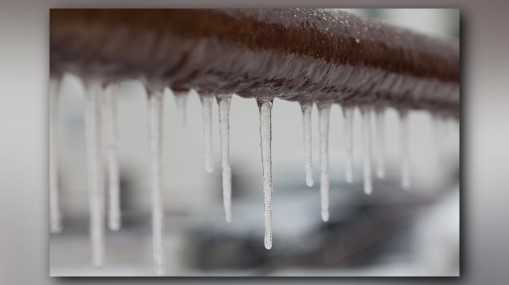Crucial Tips to Protect Against Frozen Pipes in Winter
Crucial Tips to Protect Against Frozen Pipes in Winter
Blog Article
This post below on the subject of How to Prevent Your Pipes From Freezing is fairly engaging. Give it a try and draw your own personal findings.

Winter can wreak havoc on your pipes, especially by freezing pipes. Right here's exactly how to avoid it from occurring and what to do if it does.
Intro
As temperature levels drop, the danger of frozen pipes increases, possibly resulting in pricey repair work and water damages. Comprehending just how to prevent frozen pipes is critical for home owners in cool climates.
Avoidance Tips
Insulating vulnerable pipelines
Wrap pipelines in insulation sleeves or utilize warmth tape to protect them from freezing temperatures. Concentrate on pipelines in unheated or outside locations of the home.
Home heating methods
Maintain indoor areas adequately warmed, especially locations with plumbing. Open up cabinet doors to permit warm air to circulate around pipelines under sinks.
How to recognize icy pipelines
Search for lowered water flow from taps, uncommon smells or noises from pipelines, and visible frost on exposed pipelines.
Long-Term Solutions
Architectural modifications
Take into consideration rerouting pipelines away from outside wall surfaces or unheated areas. Include added insulation to attic rooms, basements, and crawl spaces.
Updating insulation
Purchase high-quality insulation for pipes, attic rooms, and walls. Proper insulation assists keep constant temperatures and minimizes the danger of icy pipelines.
Securing Outside Plumbing
Garden hose pipes and outside taps
Detach and drain yard hoses prior to winter season. Install frost-proof faucets or cover exterior faucets with insulated caps.
Understanding Icy Pipelines
What triggers pipes to freeze?
Pipes freeze when subjected to temperature levels below 32 ° F (0 ° C) for prolonged durations. As water inside the pipelines freezes, it expands, putting pressure on the pipeline walls and potentially causing them to rupture.
Dangers and damages
Frozen pipes can bring about supply of water interruptions, home damages, and expensive repairs. Ruptured pipes can flooding homes and cause considerable architectural damage.
Signs of Frozen Pipes
Determining icy pipes early can avoid them from breaking.
What to Do If Your Pipes Freeze
Immediate actions to take
If you believe frozen pipes, maintain taps open to ease stress as the ice melts. Utilize a hairdryer or towels soaked in hot water to thaw pipes slowly.
Verdict
Stopping icy pipelines requires proactive measures and quick feedbacks. By recognizing the reasons, indications, and preventive measures, house owners can secure their plumbing during cold weather.
5 Ways to Prevent Frozen Pipes
Drain Outdoor Faucets and Disconnect Hoses
First, close the shut-off valve that controls the flow of water in the pipe to your outdoor faucet. Then, head outside to disconnect and drain your hose and open the outdoor faucet to allow the water to completely drain out of the line. Turn off the faucet when done. Finally, head back to the shut-off valve and drain the remaining water inside the pipe into a bucket or container. Additionally, if you have a home irrigation system, you should consider hiring an expert to clear the system of water each year.
Insulate Pipes
One of the best and most cost-effective methods for preventing frozen water pipes is to wrap your pipes with insulation. This is especially important for areas in your home that aren’t exposed to heat, such as an attic. We suggest using foam sleeves, which can typically be found at your local hardware store.
Keep Heat Running at 65
Your pipes are located inside your walls, and the temperature there is much colder than the rest of the house. To prevent your pipes from freezing, The Insurance Information Institute suggests that you keep your home heated to at least 65 degrees, even when traveling. You may want to invest in smart devices that can keep an eye on the temperature in your home while you’re away.
Leave Water Dripping
Moving water — even a small trickle — can prevent ice from forming inside your pipes. When freezing temps are imminent, start a drip of water from all faucets that serve exposed pipes. Leaving a few faucets running will also help relieve pressure inside the pipes and help prevent a rupture if the water inside freezes.
Open Cupboard Doors
Warm your kitchen and bathroom pipes by opening cupboards and vanities. You should also leave your interior doors ajar to help warm air circulate evenly throughout your home.

Do you appreciate reading up on Helpful Tips to Prevent Frozen Pipes this Winter? Put feedback below. We would be pleased to listen to your views about this entry. We hope that you visit us again later on. Enjoyed our article? Please share it. Help somebody else discover it. Thanks a bunch for your time. Please check our blog back soon.
Automated Marketing Report this page